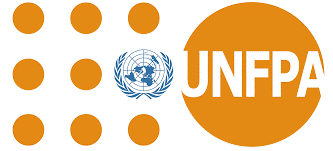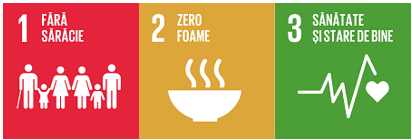Moving from traditional to a register-based statistical system, resilient to humanitarian and emergency shocks
| Project Name | Moving from traditional to a register-based statistical system, resilient to humanitarian and emergency shocks |
| Duration of the project | 2023–2025 |
| Beneficiary | National Bureau of Statistics, Ministry of Labor and Social Protection |
| Project realization stage | Ongoing |
| Project budget | 1.081,5 mil USD |
| Implementation and project partners | Project implementation: The United Nations Population Fund (UNFPA Moldova), in partnership with the National Bureau of Statistics and the Ministry Labor and Social Protection. Financial assistance for the project:
|
| The general purpose |
|
| Basic objectives and activities | Objective 1: By the end of 2025, the National Bureau of Statistics will integrate all administrative data sources in its own information systems, including in the "Population and Migration Statistics" Information System. Activity 1.1: Assessment and integrate of available administrative data sources, inclusive in the "Population and Migration Statistics" Information System. Activity 1.2: Improving national capacities for the use of administrative data in the production of official statistics using international good practices. Activity 1.3: Sharing national experience at regional and global level. Objective 2: By the end of 2025, the Government of the Republic of Moldova has a robust mechanism for collecting administrative data and survey-based data on the CIPD agenda under the SDGs. Activity 2.1: Incorporation, collection, and analysis of GBV and SRH indicators from the health information system. Activity 2.2: Carrying out the "Generations and Gender" study/surveys. |
| Components | The project is based on two main components: Component 1 Integration of new administrative data sources, as well as other non-traditional types of data, into the national statistics to facilitate transition to a register-based statistical system. This component will be implemented in partnership with the National Bureau of Statistics and will facilitate the use of new administrative data sources for the purpose of official social and demographic statistics. Integration of additional administrative data sources will provide more granular data. For instance, by including administrative data on migration and asylum (including legal migration and border crossings – held by Border Police and General inspectorate for Migration), health status (causes of mortality and morbidity – held by the National Agency for Public Health), ages and labor costs (including health and social insurance contributions, taxes collected by the National Health Insurance House, National Social Insurance House, State Tax Service), education (Ministry of Education and Research) and exploring the mechanism of using alternative data (such as water supply, communications, gas, electricity, heating, mobile phone operators, spatial) into official statistics. The granular data is the only way through which can enable the Government of the Republic of Moldova to better understand and address the needs of the most vulnerable ones and improve the quality of life with targeted policies to leave no one behind. Thanks to this project, the national statistical system will be modernized by expanding the use of administrative data in official statistical production. Component 2 Is focused on the use south-south cooperation in monitoring demographic changes in the Republic of Moldova based on longitudinal data, to support the country in implementing demographic resilient programs. This component will be implemented in partnership with the Ministry of Labor and Social Protection and will envisage leveraging cooperation between the Republic of Moldova and other countries, including India, Uruguay, Argentina, Western Balkan countries, Sweden, Netherlands, and others in conducting longitudinal studies for an in-depth analysis of demographic changes. Based on the experience of other countries leveraged through south-south cooperation, the second wave of the Generations and Gender Survey will be conducted in the Republic of Moldova. The study will involve 10,000 respondents from 153 localities of the country and the results of the Generations and Gender Survey will support the Ministry and Government overall to implement targeted policies that address the demographic resilience of the Republic of Moldova (including low fertility, ageing and migration). |
| Partnerships | State Chancellery, Administrative Data Holders, E-Governance Agency. |
| The target groups of the project | Public authorities holding administrative data decision makers, policy makers, civil society, and international community etc. |
| Contribution to the SDGs |
|
| Contacts | United Nations Population Fund Secondary office: office no. 803 str. Grenoble, no. 106 Chisinau, MD-2019 Republic of Moldova Telephone: +373 22 214 002 Email: moldova.office@unfpa.org condrat@unfpa.org Website: http://moldova.unfpa.org |
| Accomplishment |
|
- Report a mistake. Select the desired text and press CTRL + ENTER




